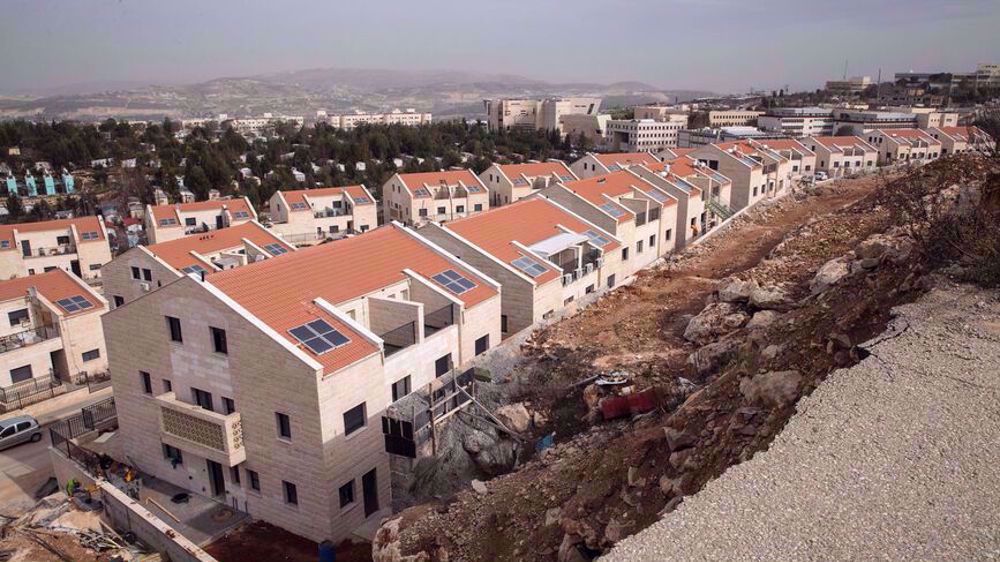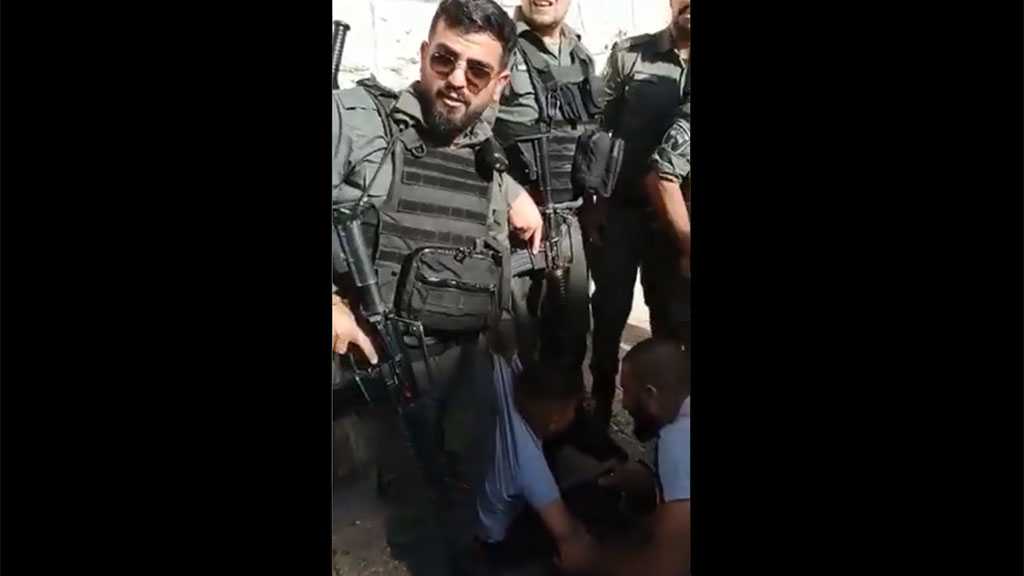June 8, 2023
Violation of right to life and bodily integrity:
A Palestinian toddler was killed, and 10 other Palestinians, including 2 children and a woman, were wounded, while dozens of others suffocated and sustained bruises in Israeli Occupation Forces’ (IOF) attacks in the occupied Palestinian territory (oPt). Details are as follows:
On 05 June 2023, two-and-a-half-year-old Mohammad Hitham al-Tamimi succumbed to a bullet injury in his head in an IOF shooting in Nabi Saleh village in Ramallah on 01 June 2023. Also, his father and 3 other Palestinians, including a woman and a child, were wounded. (Details available in PCHR’s press release).
Meanwhile, those injured were victims of excessive use of force that accompanied IOF incursions into cities and villages, or suppression of peaceful protests organized by Palestinian civilians.
On 01 June 2023, a Palestinian was shot with a bullet in his waist after IOF unjustifiably opened fire at his vehicle while crossing the Shu’fat refugee camp checkpoint in occupied East Jerusalem. The wounded was evacuated to Hadassah Ein Kerem Hospital, where his health condition was deemed serious.
On 04 June 2023, a Palestinian sustained bruises after being assaulted by IOF in Hebron’s Old City.
On the same day, 2 Palestinians, including a child, were shot with live bullets fired by IOF when the latter were protecting Israeli settlers, who conducted attacks in Burqa village in Nablus. Before their withdrawal, IOF arrested a Palestinian.
On 05 June 2023, 3 Palestinians were injured with rubber-coated bullets and a teargas canister fired by IOF while protecting Israeli settlers who conducted attacks in Kafr Thulth village in eastern Qalqilya. Also, Israeli settlers threw stones and wounded a Palestinian in the head as well as burning a vehicle.
In the Gaza Strip, 4 IOF shootings were reported on agricultural lands in eastern Gaza Strip while 9 shootings were reported on fishing boats off the western Gaza shores.
So far in 2023, IOF attacks have killed 156 Palestinians, including 78 civilians, amongst them 25 children and 6 women, and the rest were members of the Palestinian armed groups, including 2 children, 7 killed by settlers, and two died in Israeli prisons. Meanwhile, 671 Palestinians, including 105 children, 26 women and 12 journalists, were injured in the West Bank and Gaza Strip.
Land razing, demolitions, notices and settlement
IOF demolished 5 houses, including 2 residential buildings comprised of 5 housing units, displacing 6 families of 43, including 13 women and 22 children. Also, IOF demolished 2 facilities and seized around 45 dunums in the West Bank, including East Jerusalem. Details are as follows:
On 02 June 2023, IOF forced Ibrahim Abu Tair to self-demolish his 90-sqm house in Umm Tuba village in occupied East Jerusalem, under the pretext of unlicensed construction, rendering him and his pregnant wife homeless.
On 04 June 2023, IOF forced ‘Odai Surri to self-demolish a ceramic tiles showroom comprised of two buildings: one is 300 sqms and built of aluminum while the other is 100 sqms built of wood and aluminum in Jabal Mukaber village in occupied East Jerusalem under the pretext of unlicensed construction.
On the same day, IOF seized a 2-dunum plot of land and handed a demolition notice to a residential house in Al-Khader village in Bethlehem.
Also, IOF handed a cease-construction notice to 2 houses and a livestock barrack in eastern ad-Dhahiriya village in Hebron under the pretext of unlicensed construction in Area (C).
On 05 June 2023, the Israeli occupation authorities announced the seizure of 42 dunums and 651 square meters from Sarta and Bruqin villages in western Salfit under the pretext of “land acquisition for public interest” and expanding the settlement road known as “Street 5” that serves “Beduel” settlement established on Palestinian lands, west of Salfit.
On 06 June 2023, IOF forced 3 Palestinian families to self-demolish 2 residential buildings comprised of 5 housing units in Wadi Qaddoum neighborhood in occupied East Jerusalem, under the pretext of land acquisition for public interest. As a result, 31 persons, including 9 women and 17 children, were displaced.
On the same day, IOF demolished As’ad Shrieteh’s 120-sqm house in Al-Mazra’a al- Gharbiyia village in Ramallah.
Also, IOF demolished Fatmah Totah’s 120-sqm house in Wadi al-Jouz neighborhood in occupied East Jerusalem, displacing 8 persons, including 2 women and 5 children; one of them has a mobility impairment and mental disability. In the same area, IOF demolished a 50-sqm horse barrack belonging to ‘Arafat Totah under the pretext of unlicensed construction on green land.
Moreover, IOF uprooted 100 olive trees, razed many agricultural roads, and demolished a retaining wall in southern Hizam village in occupied East Jerusalem.
IOF gave demolition notices to 3 houses in eastern Yatta city in Hebron under the pretext of unlicensed construction in Area (C).
On 07 June 2023, IOF confiscated a 12-sqm steel caravan in Idhna village in Hebron.
Since the beginning of 2023, IOF have made 94 families homeless, a total of 600 persons, including 125 women and 274 children. This was the outcome of IOF demolition of 100 houses; 25 were forcibly self-demolished by their owners and 10 were demolished on grounds of collective punishment. IOF also demolished 85 other civilian objects, razed other property, and delivered dozens of notices of demolition and cease-construction in the West Bank, including East Jerusalem.
Settler-attacks and retaliatory acts
Settlers carried out at least 5 attacks on Palestinians and their property in the West Bank, injuring many Palestinians and damaging their property. Also, the settlers stole 19 sheep in the West Bank, including occupied East Jerusalem. Details are as follows:
On 03 June 2023, settlers opened fire, threw stones and pepper-sprayed at 3 houses in Sheikh Jarrah neighborhood in occupied East Jerusalem while heading to the Tomb of “Rabbi Shimon” in the central neighborhood in occupied East Jerusalem.
On 04 June 2023, Israeli settlers, from “Homesh” settlement, which is established on the lands of Silat ad-Dhahr village in southern Jenin and Burqa and Bizzariya villages in northwestern Nablus, attacked Palestinian houses at the main entrance to Burqa village. Also, the settlers set a Hyundai car ablaze, broke the windows of 2 other cars and smashed the windows of 3 houses.
On 05 June 2023, Israeli settlers, from the pastoral settlement outposts, which are established on the lands of ‘Ein Samiya compound in eastern Ramallah, sneaked into the Palestinian land in the same compound. They damaged crops and greenhouses, cut branches of trees, and damaged water tanks.
On 07 June 2023, settlers stole 19 sheep from a barn belonging to a Palestinian from Kafr ad-Dik village in western Salfit.
Since the beginning of the year, settlers have conducted at least 219 attacks against Palestinian civilians and their property. As a result, 7 Palestinians were killed, and dozens of others were injured; most of them were due to being beaten and thrown with stones. Also, dozens of houses, vehicles and civilian facilities were set ablaze.
IOF incursions and arrests of Palestinian civilians:
IOF carried out 190 incursions into the West Bank, including occupied East Jerusalem. Those incursions included raids and searches of civilian houses and facilities and establishment of checkpoints. During those incursions, 99 Palestinians were arrested, including 6 children. On 01 June 2023, IOF conducted a widescale arrest campaign against 23 Palestinians from Tuqu village in Bethlehem. On 06 June 2023, IOF locked the residents of a building housing 3 families of 14 on the ground floor near the annexation wall in Zeita village in Tulkarm, and turned it into a military barrack. One of the building residents said that IOF forced them to leave their apartments and locked all of them on the ground floor, informed them that they will stay in the house for 3 days.
In the Gaza Strip, IOF carried out a limited incursion into eastern Khan Yunis on 05 June 2023.
So far in 2023, IOF have conducted 4,431 incursions into the West Bank, including occupied East Jerusalem, during which 2,545 Palestinians were arrested, including 25 women and 291 children. Also, IOF arrested 34 Palestinians from the Gaza Strip including 12 fishermen, 19 infiltrators into Israel, and 3 travelers at Erez Crossing. IOF also conducted 16 incursions.
Israeli closure, restrictions on freedom of movement, and collective punishment:
Israeli occupation maintains its illegal and inhuman 16-year closure on the Gaza Strip. Details available in PCHR’s monthly-update in the Gaza crossings.
In the West Bank, including occupied East Jerusalem, IOF continue to impose restrictions on the freedom of movement. On top of its 110 permanent checkpoints, IOF established 120 temporary military checkpoints in the West Bank, including occupied East Jerusalem, and arrested 2 Palestinians at those checkpoints.
As part of their collective punishment policy, IOF continued their cordon on al-Mughayyir village, east of Ramallah, for 24 consecutive days by closing its eastern and western entrances, under the pretext of providing protection for settlers living in the nearby pastoral settlement outposts.
According to PCHR’s fieldworker, on 01 June 2023 in the morning, IOF removed the sand berms from the western entrance and re-opened it after 19 days of its closure while the western eastern remained closed. As the villagers continued to protest the closure of the eastern entrance and their attempts to re-open it, IOF moved into the village on 03 June 2023 and conducted a widescale incursion; during which 15 Palestinians were arrested.
Ameen Abu ‘Aliyia, Head of Mughayyir Village Council, said that IOF have completely closed the village’s eastern entrance while they close the western entrance daily from 06:30 to 14:00, preventing the villagers from entering and exiting the village and forcing them to take dirt roads to reach their workplaces.
So far in 2023, IOF have established 2,646 temporary military checkpoints and arrested 126 Palestinians at those checkpoints.
More
Filed under: "Israel", Israeli Crimes crimes against humanity, Palestine | Tagged: Besieged Gaza Strip., Burqa, Checkpoints, East al-Quds, Freedom of movement, Hebron, Home demolition, Israeli Occupation Force IOF, Jabal Mukaber village, Occupied W Bank, Palestinian Centre for Human Rights (PCHR), Palestinian Resistance factions, Qalqilya, Salfit, Settlers Attacks | Comments Off on Israeli Human Rights Violations in Palestine (Weekly Update 01-07 June 2023)















